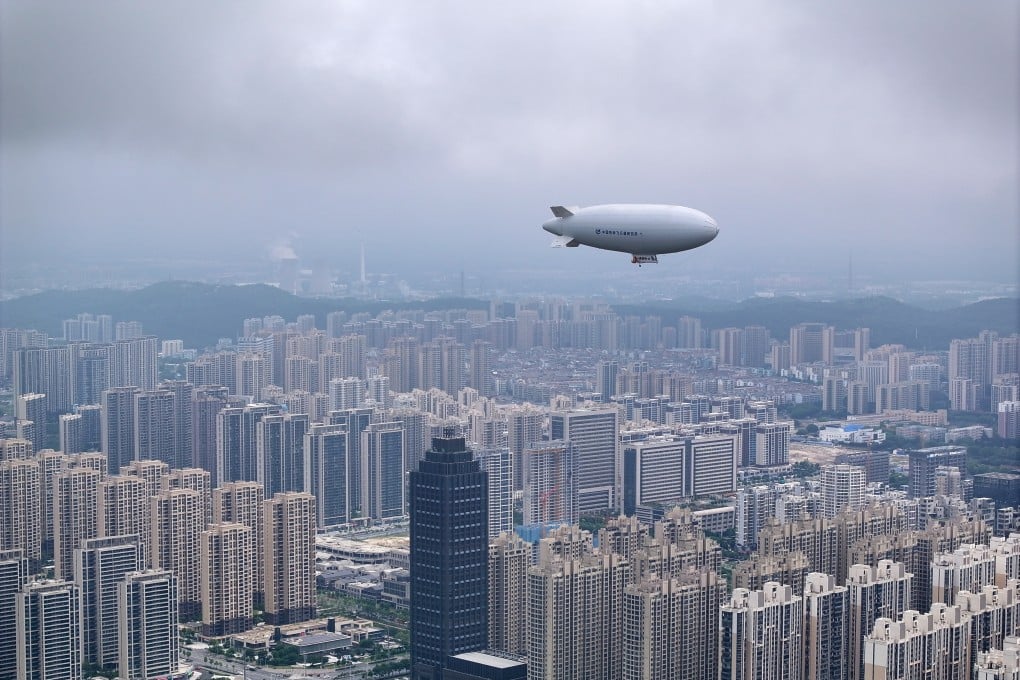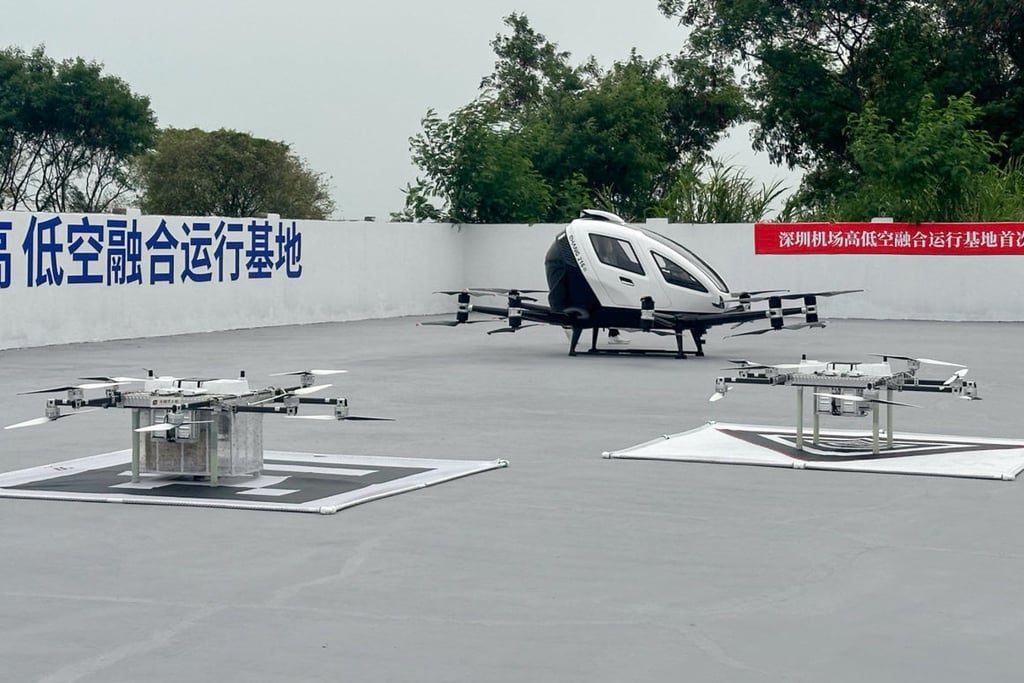Explainer | What’s the buzz with China’s low-altitude economy, and what is propelling its development?
- From drone deliveries and surveillance to flying cars and tourism, technology for manned and unmanned aviation applications is being rapidly embraced across China

For anyone following China’s economic development and policy updates this year, it is hard to miss the rising buzz around the “low-altitude economy”, a term increasingly touted as a new growth driver for a national economy struggling to find new sources of momentum.
As China’s traditional real estate and infrastructure investment-based development model can no longer sustain high-quality economic growth, central and local authorities are turning their sights from the land to the skies.
“Low-altitude economy” generally encompasses manned and unmanned activities within airspace below 1,000 metres (3,280 feet), but the range can be extended to 3,000 metres depending on regional and practical needs.

What are practical applications of China’s low-altitude economy?
1. Transport
Technology for electric vertical take-off and landing (eVTOL) aircraft, aka flying cars, is being developed for airport shuttles and intercity air travel, providing air taxi and logistics services.
Shanghai-headquartered Autoflight has announced that eVTOL fares could drop to 6 yuan (84 US cents) per kilometre, potentially lowering the cost of a 20-minute flight from Shenzhen to Zhuhai to as low as 240 yuan, compared with the current two-and-a-half-hour drive.
The Yangtze River Delta is also advancing in this area, with eVTOL flights between Shanghai and Suzhou completing the journey in under 30 minutes for a few hundred yuan per person.
2. Logistics
Drones are being utilised to enhance last-mile delivery efficiency, including the transport of parcels and medical supplies, as well as emergency rescue.